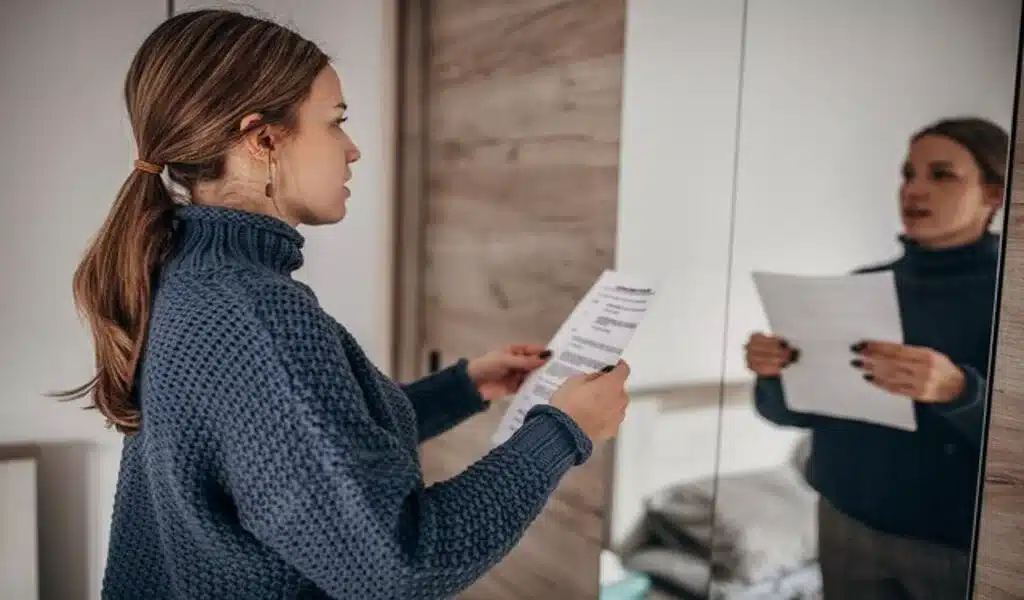PR News
A Guide to Preparing for a Law School Interview

(VORNews) – Law schools interview prospective students to determine whether they are a good fit for the institution. By identifying their strengths from previous academic and social experiences, understanding their future goals and career aspirations, and how their presence could benefit the campus climate, schools can create a more positive learning environment.
Applicants to law school can prepare for these critical conversations by following these tips from experts.
Law School Interview: Determine if the interview will take place in person or virtually

“You should check with the law school before to learn if the interview is asynchronous or if it is a live interview,” says Michelle Martinez, a third-year law student at the University of Texas at Austin.
It has been five years since that school conducted its interviews asynchronously, or virtually. “I prepared by recording myself answering these questions,” Martinez says, “and it was helpful because it didn’t require me to be in front of someone and answer those questions.”
UT Austin’s law school requires students to submit a 90-second video recording of themselves answering a few questions. The school’s assistant dean of admissions and financial aid, Mathiew Le, explains that each category encompasses a particular attribute.
Their motivations for attending law school, their communication skills, and areas of interest are among these attributes.” All students are invited to attend interviews at some law schools, while some are only invited by invitation. Some schools do not include interviews in the admissions process at all.
Prepare for interviews by reviewing your resume and practicing
Prospective students should prepare for their interview as if it were a job interview, reviewing their resume beforehand and practicing with friends or family members. During the process of researching the school, you should take the opportunity to see all of the things the school has to offer,” he advises.
“I would also encourage students who are preparing for their interview to look back at their resume and review their various experiences to help remind them of the things they’ve accomplished that will be helpful in their responses.”
For remote interviewees, Le urges them to make sure the environment they’re in is free of distractions, such as family and friends talking in the background. Getting the most from an interview also means being prepared to present yourself as a prospective law student and to discover more about the school.
“You’re treating it like a professional job interview, so things like having your resume handy and being prepared to answer questions about it, and preparing questions for your interviewer about the school or the legal profession, says Todd Morton, assistant dean and dean of admissions at Vanderbilt Law School in Tennessee.
The most important thing is to help your interviewer understand who you are and why you want to become a lawyer in the end..” When it comes to interview attire, Morton says business casual is most common, but what matters most is how applicants present themselves.
According to him, Vanderbilt takes a holistic approach to the admissions process, which considers a student’s academics, involvement in the community, and work experience. An applicant’s resources and opportunities and how they utilize them to advance themselves and make a positive impact on others are also considered.
Ask Good Questions
“Applicants sometimes don’t think about the questions they should bring,” Morton notes. An interview is a great way for potential law students to learn more about the different programs and aspects that the school offers, as well as how one school stands out from another based on an applicant’s interests and long-term goals.
According to Morton, Vanderbilt is also interested in understanding why a student wishes to attend law school and what resources they plan to take advantage of at Vanderbilt to launch their careers in law.
Types of Interviews You May Face
Interviews are not just a chance to impress law school admissions officers, but also an opportunity to explore the legal profession and areas of practice, Morton says.
A prospective attorney should consider the types of clients who motivate and interest him, something most applicants don’t realize until they begin law school and complete their first year.
Interviews with alumni
Morton says Vanderbilt uses an alumni interview program, which is rare nationally. In a given year, the school has between 700 and 900 alumni interviewers across the U.S., and prospective students indicate whether they would like an interview during the application process.
In response to a request, an alumni interviewer will reach out to the prospective student and arrange a 30-minute interview online or in person. Morton says these optional interviews were created in 2007, and with an average pool of 5,000 applicants, typically 800 to 1,000 choose to participate.
An alumni interview allows you to speak with someone who attended the school you are interested in and who may even be practicing law in the location where you are interested,” Morton says.
“It’s a good opportunity to not only introduce yourself to prospective law students but also to ask questions of and to connect with a lawyer, possibly in an industry you are considering after graduation.”
Alumnae interviews don’t guarantee admission to Vanderbilt, but they will submit a formal report detailing the meeting to the admissions office.
Random Interviews
The J. Reuben Clark Law School at Brigham Young University in Utah uses a random interview method. “Not all applicants will be interviewed, but we do select some applicants, either at random or if we are considering admitting them, and contact them for a phone interview,” says Anthony Grover, the school’s head of admissions.
Grover says the interviews allow him to ask questions regarding the application and get to know a candidate beyond the documents. He believes students who are not picked for an interview need not be concerned because having an interview does not guarantee admission.
And those who did not perform well in the interview need not worry, he advises because it is only one aspect of the school’s overall application process. “It’s not a formal process in which we score the interview and feed it into a formula, so to speak, to get a judgment.
But if I have a question about something on their application and they explain it to me, it provides me a better understanding of their past and experiences.” BYU makes an admissions decision four to six weeks after an application is received. Interviews are scheduled for that period.
Grover advises students to come to the table prepared to define the elements that prompted them to apply to the school, what they seek in a law school experience, and how they may contribute to the legal community.
For candidate preparation, this might include researching school-specific programs, research, job results, professors, and other resources. Grover recommends that they be well-versed in the application materials they supply so that they can effectively answer any questions the interviewer may ask.
Because the interviews at Texas are asynchronous, Le says students must talk in a way that is readily understood across generations, as the video replies are frequently reviewed by individuals of all ages. “You should also assume that the interviewer or the admissions committee has already read your file at least once or twice,” he said.
Applicants may “repeat things that are on their resume or in other parts of the application,” according to Le. “That’s not to say that you can’t do that, it’s just that if there are additional things to include about your background or interest in the law school or why you’re pursuing law school, this is your opportunity to express that.”
Martinez attended many law school activities before admissions, including a “Latino Law Day,” to strengthen her contacts with faculty and possible students. “That was very helpful,” she says. “It allowed me to meet other (prospective) students and other law students and see why they chose UT as opposed to other schools.”
Trending News:
Researchers Reveal Masturbate in a Month Can Reduce their Prostate Cancer Risk






























